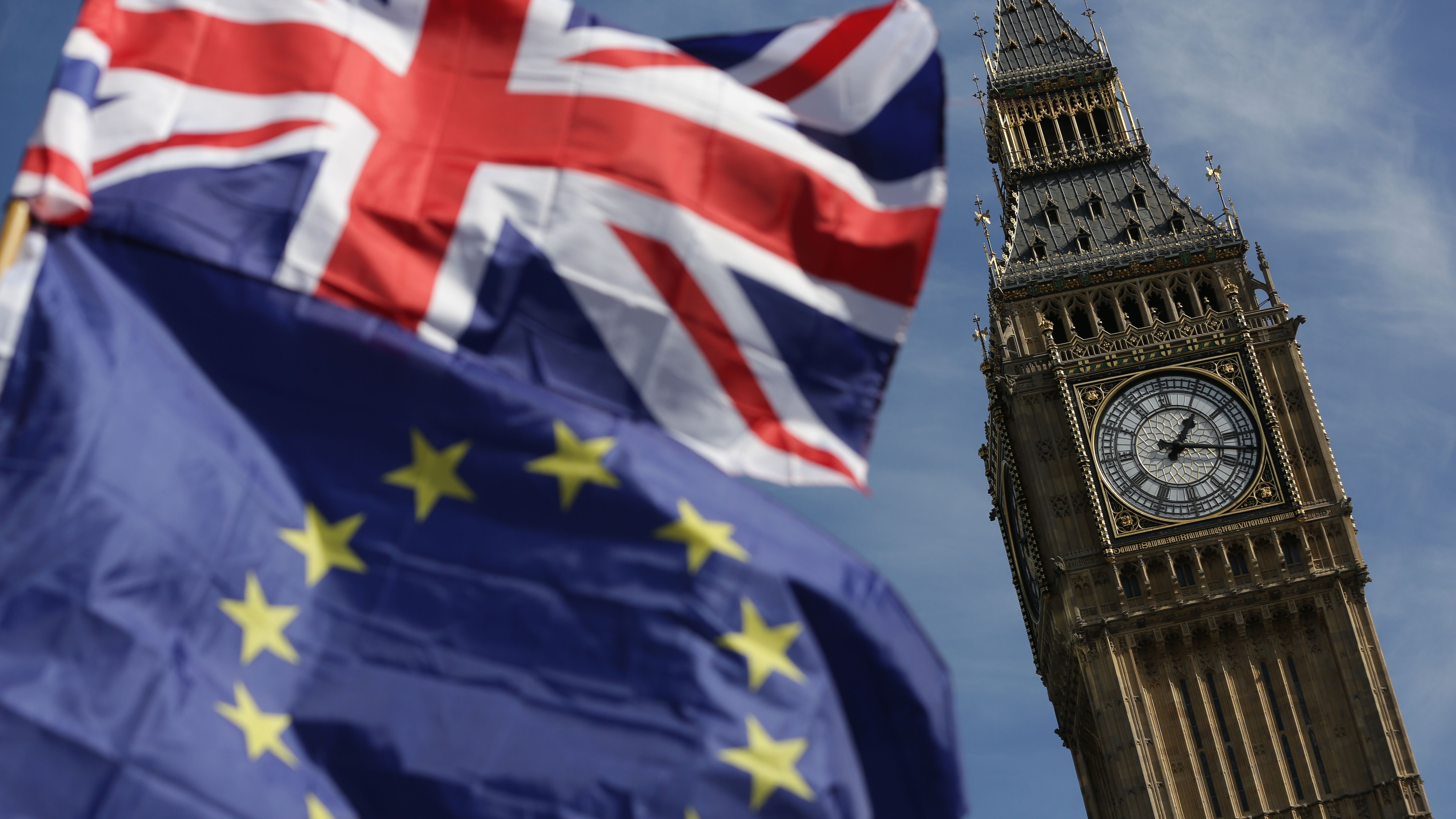What’s next for Boris Johnson’s Brexit negotiations?
The UK will leave the EU in January - but Brexit has only just begun

A free daily email with the biggest news stories of the day – and the best features from TheWeek.com
You are now subscribed
Your newsletter sign-up was successful
Boris Johnson looks set to deliver on his promise to “get Brexit done” and take the UK out of the EU by 31 January.
But the UK’s departure from the bloc is not the end of Brexit - rather, it is the start. Assuming the UK leaves on 31 January, the country will then enter a transition period that is scheduled to end on 31 December 2020.
And Johnson intends to capitalise on his election success to amend his withdrawal agreement, writing into law that the UK must leave the EU in 2020, and cannot extend the transition period.
The Week
Escape your echo chamber. Get the facts behind the news, plus analysis from multiple perspectives.

Sign up for The Week's Free Newsletters
From our morning news briefing to a weekly Good News Newsletter, get the best of The Week delivered directly to your inbox.
From our morning news briefing to a weekly Good News Newsletter, get the best of The Week delivered directly to your inbox.
So what are the possible scenarios after the UK leaves the European Union in January 2020?
Zero-tariff free trade agreement
Johnson’s decision to enshrine a 2020 exit in law means there will only be enough time to agree a “pretty basic trade deal which would leave many important issues unresolved”, says the BBC.
That increases the likelihood of a quick zero-tariffs, zero-quotas deal on goods being done, if Johnson is prepared to sign the UK up to the EU’s rules on environmental and social policy, and state aid for companies.
A free daily email with the biggest news stories of the day – and the best features from TheWeek.com
The EU could also request “dynamic alignment” in some areas, reports The Daily Telegraph, which would see the UK forced to follow new EU rules as they develop in future.
This is not the same as “frictionless” trade. There will still be border checks on goods travelling between the UK and EU, and many industries say this “barebones arrangement will not differ markedly from ‘no deal’ in terms of paperwork at the border”, says the Telegraph.
Even with negotiations on other key areas thrown in as “neighbourhood” agreements, a zero-tariffs, zero-quotas FTA would still be a hard exit – and it is Johnson’s stated target.
A limited free trade agreement
If Johnson is unwilling to accept EU rules to put the UK on a “level playing field” with its EU competitors, the two sides could agree a more limited deal.
This would likely see protective tariffs on some products, though the UK would win back some regulatory autonomy from the EU.
However, with different industries lobbying to have their business area protected by tariffs, this type of agreement could become complex and time-consuming at a stage when the two sides need to reach agreement quickly.
“It gets awfully complex for the time frame, even if some tariffs maintained which is overall feasible,” said David Henig, a former UK trade official who worked on the EU-US deal.
“The EU’s aim is to keep the UK close. If the UK is not interested, then it is not clear why the EU would rush to do the deal.”
Hard Brexit: WTO terms
If Johnson fails to get a free trade agreement of any sort with the EU, then he may decide to take the UK out of the EU with no deal at all.
This would mean the UK trading on the most rudimentary of international rules – those of the World Trade Organization (WTO).
This would leave UK industry exposed without tariff protections, as the government has said that 87% of imports to the UK would be tariff-free.
Johnson may choose this route if he judges that the rules the EU is trying to attach to a trade deal outweigh the benefits of access to the EU market. He might also be forced into the move to preserve his image as someone who will “get Brexit done” no matter the cost.
Almost half of UK exports go to Europe, and the costs of barriers to trade with the EU could result in a loss of GDP of up to 7%, trade experts have warned. This means a massive hit to the economy that a trade agreement with non-EU states could not mitigate against.
Transition extension
If the UK and EU reach autumn 2020 with a zero-tariff, zero-quota deal on the table – but not yet signed off – then the two sides could provisionally apply the agreement before full ratification.
This would give both sides more time to finish the final deal, while avoiding the cliff edge of the UK leaving without an agreement.
The political atmosphere later in the year will likely dictate how the UK and EU treat such an idea.